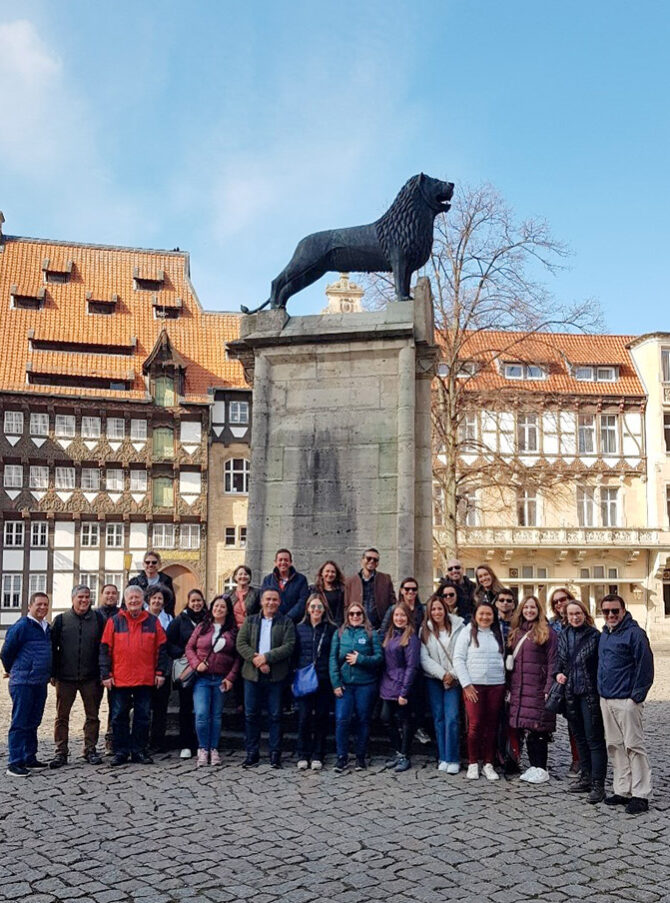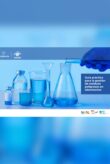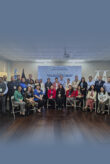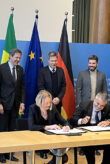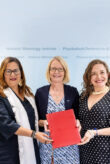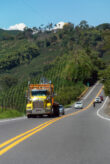In the ARTICAL II project, stakeholders of the Colombian quality system SICAL, the public sector and industry have worked towards strengthening quality services for the circular economy for the first time. The project was successfully rounded off with a study trip to Germany in March 2024.
Due to the Covid-19 pandemic, everything had to be rescheduled. At the start of the project in 2020, a hybrid tour concept called “Circularidad con Calidad” (Circularity with Quality)was developed. This consisted of three online events on standardization, accreditation and metrology for the circular economy along with a visit to the recycling company LITO S.A.S. in Bogotá. The trip to Germany from 17 to 22 March 2024 was a successful conclusion to the study tour and the entire project. For the partners from Colombia, one goal of this study trip was to become acquainted with good practices from other countries for developing and implementing quality services for the circular economy. They also wanted to add new impetus to exchange their experiences and establish better networks in Colombia.
The 23 participants from all the important SICAL partner institutions, ministries and industry were very enthusiastic about this project. After an introductory workshop as well as a walking tour in Braunschweig on Sunday, the first two days were dedicated to events and meetings at PTB. The group visited some PTB laboratories and listened to talks from the PTB Innovation Cluster for Energy as well as the Innovation Cluster for Environment and Climate. The participants also connected with colleagues from PTB’s Latin American and Caribbean Section of the International Cooperation Group.
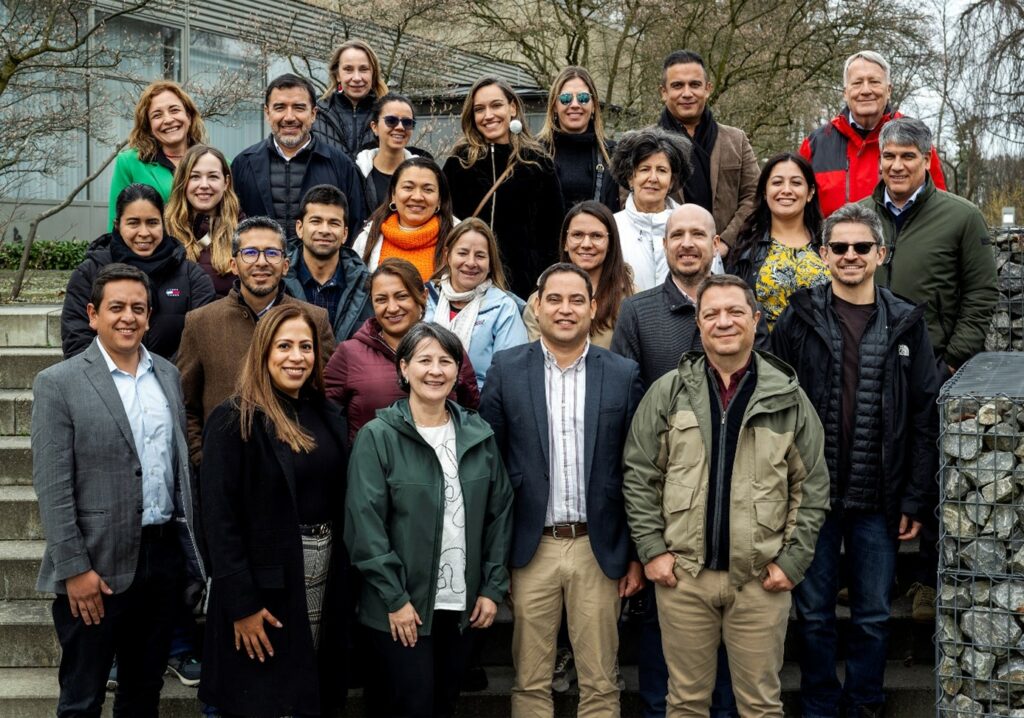
Discussions with TU Braunschweig (from the division of Industrial/Organizational and Social Psychology) focused on how the circular economy can be designed in a human-centred manner.
The visit to the calibration laboratory Perschmann Calibration impressed the participants with insights into how optimizing processes can increase effectivity so that more than 2,000 calibrations can be carried out per day.
On the third day, the trip continued from Braunschweig to Bochum. While being there, the participants visited various locations of Remondis. This is Germany’s largest company in the field of recycling and processing of materials such as paper, wood, construction waste, steel, plastics, noble metal and organic waste. In Europe’s largest plastic sortingplant, which has been in operation since 2023, optical measurement procedures with artificial intelligence are used to sort plastic waste in a needs-based way.
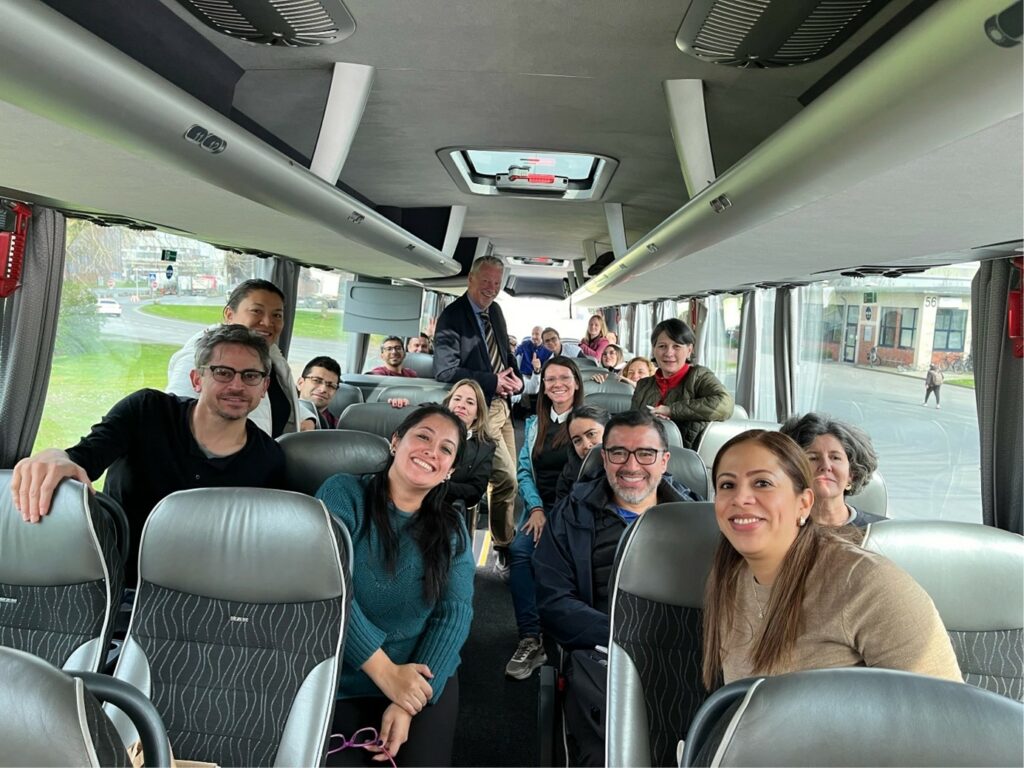
The fourth and fifth day of the trip were spent in Berlin, with a focus on innovation. The group learned about the cradle-to-cradle concept (C2C), which pursues an ideal production process in accordance with the principles of the circular economy and in which materials can be reused without the loss of quality. Luxwerk, an innovative business campus, is being created on the grounds of the former lamp and light bulb manufacturer Osram in Berlin-Spandau. Here, the approaches of the circular economy are taken into account from the planning phase (architecture, design) and are implemented by using such things as recyclable products or renewable resources.
The group learned more about the theory of the approach in a participative workshop at the C2C NGO. At the NGO’s location, a refurbished prefab building that was made with concrete slabs in Berlin-Friedrichshain, the meeting spaces have been renovated in line with a certifiable C2C approach.
Another highlight was the visit to the German Institute for Standardization (DIN). While they were at DIN, the participants had a lively exchange about the role and importance of standardization for sustainable development and the circular economy. Their talks also centred on the German national standardization roadmap.
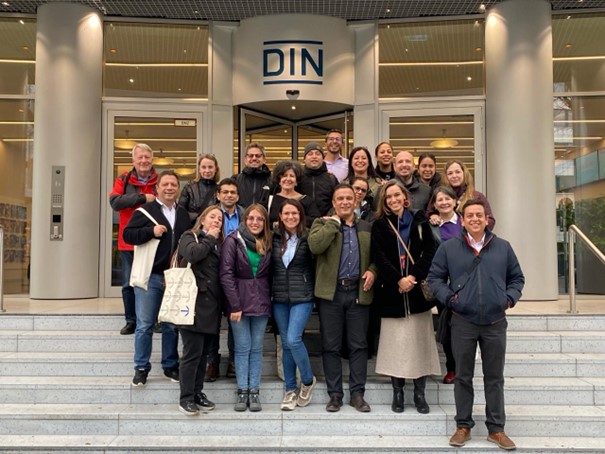
Finally, the delegation was greeted by Ambassador Yadir Salazar-Mejía at the Colombian Embassy in Berlin. She received information about the results of the study trip and the collaboration between PTB and its Colombian partner institutions.
It was a very busy, successful week for all the guests and the PTB team, full of discussions, information and new ideas related to the circular economy. As all the participants were very motivated, the atmosphere was excellent. They especially appreciated seeing demonstrations of the circular economy in use combined with theoretical approaches, the interactions between all those involved and the overall organization of the trip.
Altogether, the two-year hybrid study tour has managed to promote exchanges between the SICAL institutions and industry in Colombia. It has also led to industry representatives having a better understanding of the importance of suitable quality services. Furthermore, it has contributed to a better understanding of the economic needs for implementing circular economy approaches.
The study trip thus forms a good basis for the follow-up project titled ARTICAL III, in which the activities for strengthening the SICAL for the circular economy will be continued.
Images © PTB


